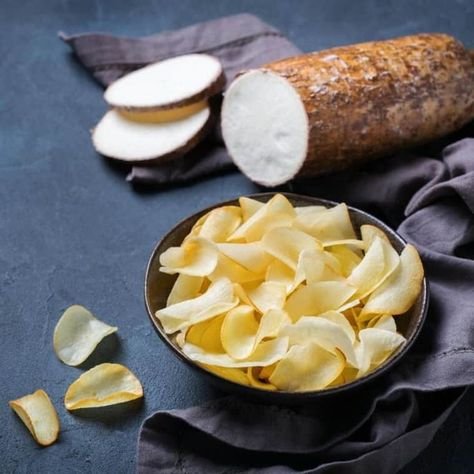Yuca, also known as cassava, is a starchy root vegetable that has been a staple food in many parts of the world for centuries. Rich in carbohydrates, fiber, and essential nutrients, yuca is widely used in various cuisines and has numerous health benefits. This article will explore everything you need to know about yuca, from its nutritional profile to its culinary uses and health advantages.
Table of Contents
What is Yuca?
Yuca is a tuberous root native to South America, but it is also cultivated in Africa, Asia, and the Caribbean. It is an essential food source for millions of people due to its high energy content and adaptability to different climates. The plant produces long, woody roots that are covered with a rough, brown outer skin and have a white or yellowish interior.
Nutritional Benefits of Yuca
Yuca is packed with essential nutrients that provide various health benefits. Here’s a breakdown of its nutritional profile:
- Carbohydrates: Yuca is a rich source of complex carbohydrates, making it an excellent energy booster.
- Fiber: The high fiber content in yuca aids digestion and promotes gut health.
- Vitamins: Yuca contains vitamin C, which supports the immune system, and B vitamins that help with energy metabolism.
- Minerals: It is a good source of potassium, magnesium, and calcium, which are vital for heart health and strong bones.
Health Benefits of Yuca

Yuca offers numerous health advantages, making it a valuable addition to a balanced diet.
- Supports Digestive Health
The fiber in yuca helps regulate digestion, prevent constipation, and promote gut bacteria. - Boosts Energy Levels
As a complex carbohydrate, yuca provides a sustained energy release, making it ideal for athletes and individuals with high energy demands. - Strengthens the Immune System
The vitamin C in yuca helps boost the immune system, protecting the body against infections and illnesses. - Promotes Heart Health
Yuca is rich in potassium, which helps regulate blood pressure and supports cardiovascular function. - Gluten-Free Alternative
People with gluten intolerance or celiac disease can enjoy yuca as a gluten-free substitute for wheat-based products.
How to Cook and Prepare Yuca
There are many ways to enjoy yuca, and it can be prepared in various forms.
- Boiled Yuca: One of the simplest ways to prepare yuca is by boiling it until it becomes tender. It can be served with butter, garlic sauce, or other seasonings.
- Fried Yuca: Sliced yuca can be deep-fried to make crispy yuca fries, a delicious alternative to potato fries.
- Mashed Yuca: Similar to mashed potatoes, boiled yuca can be mashed and mixed with butter, milk, and spices.
- Yuca Flour: Ground yuca is used to make flour, which can be used for baking bread, cakes, and pastries.
- Yuca Chips: Thinly sliced yuca can be baked or fried to make a crunchy snack.
Yuca vs. Yucca: Understanding the Difference

Many people confuse yuca with yucca, but they are entirely different plants.
- Yuca (Cassava): An edible root vegetable that is used for food and flour production.
- Yucca: A desert plant with spiky leaves that is primarily grown for ornamental purposes and medicinal uses.
Potential Risks of Yuca Consumption
While yuca is highly nutritious, it must be prepared properly to avoid health risks.
- Raw Yuca Contains Cyanogenic Compounds: Raw yuca contains natural toxins that can produce cyanide when consumed in large amounts. Proper cooking removes these harmful compounds.
- High in Carbohydrates: Individuals with diabetes should consume yuca in moderation due to its high carbohydrate content.
- Allergic Reactions: Some people may be sensitive to yuca, so it’s best to start with small amounts.
Sustainable Farming and the Importance of Yuca
Yuca is a drought-resistant crop, making it an essential food source in regions with limited water availability. It plays a crucial role in food security and is a valuable resource for developing countries.
Also read Collate Understanding Its Meaning, Importance, and Applications
Conclusion
Yuca is a versatile and nutritious root vegetable that provides numerous health benefits. Whether boiled, fried, or mashed, yuca can be incorporated into various dishes, making it a valuable addition to any diet. However, it is essential to prepare yuca properly to avoid any health risks. With its rich nutritional profile and sustainable farming benefits, yuca remains a staple food for millions of people worldwide.


